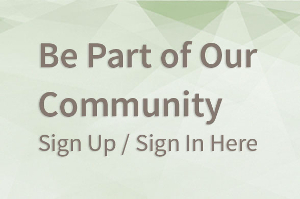BK Blog Post
Quality Content Trumps Content Shock
 Posted by
Shabnam Banerjee-McFarland,
Sales and Marketing Strategist,
Berrett-Koehler Publishers, Inc. .
Posted by
Shabnam Banerjee-McFarland,
Sales and Marketing Strategist,
Berrett-Koehler Publishers, Inc. .
Shabnam is the Sales & Marketing Strategist at BK and coordinates launch campaigns for a few books per season. She is a San Francisco native born & raised, forever wandering the earth like a unicorn.
How do I make my voice heard above the noise?
As a writer, I’m blessed to be witnessing the age of the Internet. The barriers to publication entry are extremely low – anyone can run a blog. Unsurprisingly, this opens the floodgates for ideologues and fickle writers alike to weigh in on, really, whatever they please.
Sometimes, though, I feel as though I’m only a small cog in an overwhelming machine. I work extremely hard to generate articles that pose stimulating responses, but in turn they receive little attention.
Am I just a drop in the rainstorm that is the Internet? Yes, and no. But that’s not necessarily a bad thing.
One blogger named 2013 The Year of the Online Writer, which introduced the ways in which content marketing provides spaces for creative writers to interact with online communities, marketing strategies and business structures as they never have before. Content marketing requires an investment from business to elevate the value and quality of their produced content. Consumers can discern poor quality content from the clean, well-researched interfaces, articles, images and videos that companies advertise.
The writer, according to this particular blog post, becomes the entrepreneur, and can promote their articulate talents, as they themselves are the producing machines. In this same line of thought, the online writer merges their set of values and advocacies, or their platform, to their self-brand. Not only through the growing industry of self-publishing, online writers create spaces for writing about their values platform that strengthens with public perception; writers, themselves, are the brand. The notoriety they gain from viral articles on Gawker, Buzzfeed, Huffington Post, Alternet, you name it, merge their written words and actions to their online persona.
However, some marketing experts, such as Mark Schaefer, godfather to the controversial theory “content shock,” argue that the exponential rate at which valuable, good content is growing is far too much for the Internet consumer to absorb. Content shock, as defined by Schaefer, is the “emerging marketing epoch defined when exponentially increasing volumes of content intersect our limited human capacity to consume it.“
The question begs to be answered, what does this mean for the quality of online content produced? Now, more money, time and energy is needed to ascertain valuable content, which means that producers must almost pay their audiences to consume it. Are we experiencing a time in which the Internet is just too much for us? One stat quotes the quantity of content uploaded online as doubling every 9 to 24 months. It’s truly incredible.
Is it possible to make some voices heard above the rest of the noise?
Perhaps we’ve reached a point during which our meek human capacity for absorbing information is approaching our limits.
I can’t say I agree. Upon further insight, few writers over at Copyblogger and the Sales Lion dispute that it’s beyond our capability to absorb all of this content. In reality, it’s an evolution of content, rather than a shocking point. Good, thorough and interesting content will always be valuable to consumers, and that is never going to change. People will always seek out evidence to support their inquiries, and they will undoubtedly trust that which is consistent, backed by fact, and genuine.
As for the online writer, this is still very good news. Since we bind ourselves to our personal brand, we can now be the most authentic version of ourselves in order to uplift our voices above the white noise. BK author David McNally, of Be Your Own Brand, details that the strongest form of the self-brand is born out of the closest alignment to one’s own values platform.
There are no bad or good self-brands, but instead strong and weak. A strong personal brand gauges its consumer base and audiences, and acts consistently in order to facilitate positive change in others. McNally posits that the bigger the impact, which can also be negative, the stronger the brand.
This isn’t to say that those who identify with a strong self-brand are entirely dogmatic or unwavering, but rather hone their skills and strengths to make a deeper impact on their audiences. While there is an almost inconceivable rate of growth for good online content, it does not suggest that people will not still consume it.
There is no foolproof method for promoting my work, my voice and my system of beliefs above others. That implies a sense of hierarchy that is quickly being redefined within the online realm – it resembles more of an interweb (see what I did there?). Instead, the best I can do, as an online writer, is to adhere to my values and communicate them clearly, authentically, justly and to stay relevant by remaining vigilant of my critiques and strengths.
As many of my advisors, editors, parents, and peers have imparted before “the best way to get ahead in writing is to get started.” Good content is invaluable, and people will always seek it out. What encourages me to continue producing and raising the standard for content is remaining authentic to myself, and strengthening my personal brand. Doing this both enhances my personal development by understanding myself, and still nurturing my work to be more meaningful to my readers.





